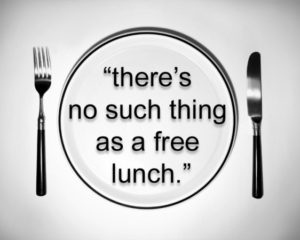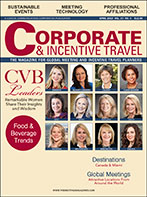 Zak Mroueh is the Founder of Zulu Alpha Kilo, a creative agency based in Toronto. Several years ago, he got fed up with doing spec work for clients – in the agency world this is creating entire ad campaigns to use in a pitch situation when trying to win a client. As you can imagine, this is very expensive. It also leads to situations where clients use your ideas but not your firm, choose an incumbent in spite of your work – because they needed a “second bid”, and other scenarios where a lot of time and money are spent on proposals and sharing of Zulu Alpha Kilo’s experience and creative work.
Zak Mroueh is the Founder of Zulu Alpha Kilo, a creative agency based in Toronto. Several years ago, he got fed up with doing spec work for clients – in the agency world this is creating entire ad campaigns to use in a pitch situation when trying to win a client. As you can imagine, this is very expensive. It also leads to situations where clients use your ideas but not your firm, choose an incumbent in spite of your work – because they needed a “second bid”, and other scenarios where a lot of time and money are spent on proposals and sharing of Zulu Alpha Kilo’s experience and creative work.
Wait a minute! Doesn’t that sound just like the Incentive Travel Industry sales process??
Mr. Mroueh made the decision to no longer do “spec” work. As a result, he does not bid on 80% of the leads that come to him, because spec work has been required “going back to the days of Mad Men”. In other words, it had always been that way so that is just the way it is. But as Mr. Mroueh points out, spec work “Is expensive. It’s time consuming. It’s stressful. And let’s face it – it’s an institutionalized way of getting us to work for free”.
Again, this sounds a lot like what we do in the Incentive Travel Industry!
There is a hilarious set of videos that Zulu Alpha Kilo have produced to emphasize this point, here is an example: https://www.youtube.com/watch?v=8y5IaCQA86o.
So six years ago Mr. Mrouech made the decision to “Say No to Spec”. Far from hurting his business, it has thrived and in 2016 Zulu Alpha Kilo was named Ad Age’s Small Agency of the Year, a prestigious industry award.
In the Incentive Travel Industry, Destination Management Companies, Incentive Houses and Meeting Planning companies of all stripes are expected to put their best work forward in a pitch to a client, with no guarantee of a lasting relationship. The most expensive part of our program development and production process is the sales proposal part. However, when a client looks at our pricing, they are only taking into account what they are paying us for each event compared to what they think they can find on the street. To develop a customized, accurate proposal for a client can take as much as 100 hours of work by our proposal team. Add hard costs like site inspections, and the cost of a sales proposal quickly goes past $10,000. Taking into consideration the industries average conversion rate (percentage of sales proposals confirmed), the sales load of a decent size program runs around $25,000.
Can we as an industry come up with a better solution for clients and ourselves to determine the best partnerships? There are plenty of reasons to do so from the client’s perspective as well. How much time do our clients spend screening multiple spec bids for each project, when finding a partner that best fits their business needs and sticking with them over time would be much less expensive? With proposal deadlines being what they are, clients are likely not even getting the best work from the companies they are soliciting. Mr. Mrouech further points out that “Spec has led to an epidemic in the industry where agencies are constantly diverting resources away from their existing clients in order to fuel new business opportunities. And here’s the big reveal: guess who is paying for it all? You, the client. You’re the ones who end up funding the spec pitch process. It’s a crazy cycle that hurts you in the end.” If the time and money spent on the sales process was spent perfecting the client’s program from the beginning, both the proposer and the client would have a much better ROI.
At AlliedPRA New Orleans, are we ready to #saynotospec? It would take a wholesale change in how our industry operates. If we say no, somebody else will say yes. It takes someone with serious intrepidness like Zak Mroueh to implement a move like that. But, I am almost there…


